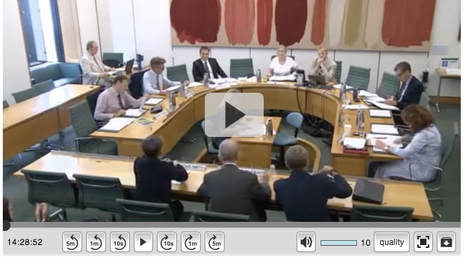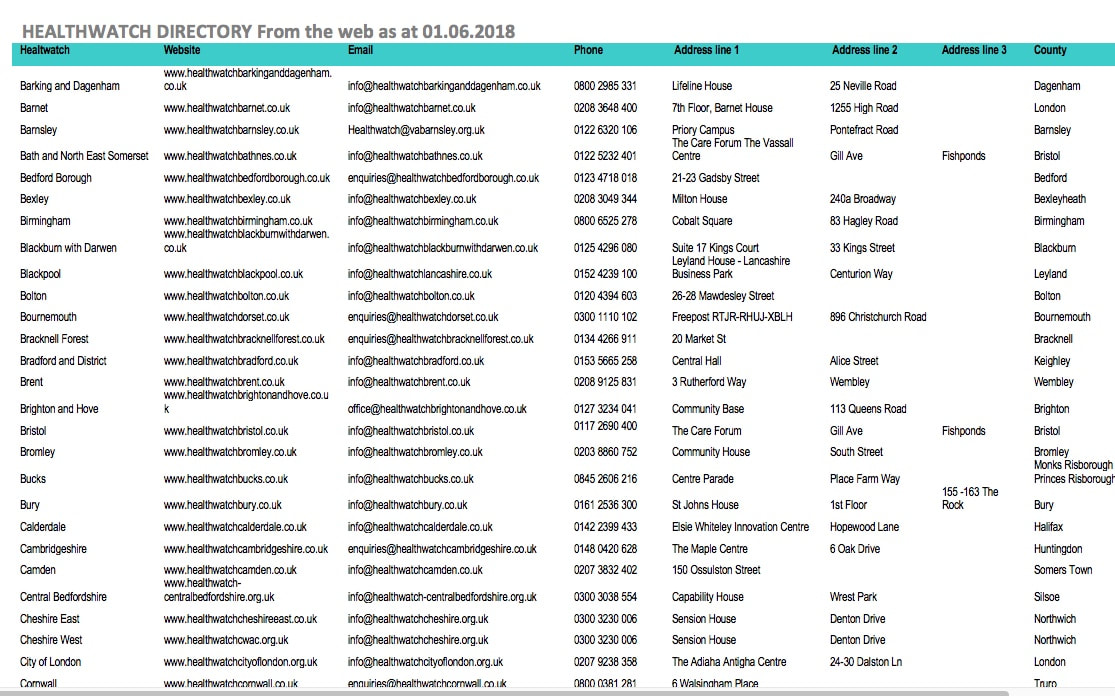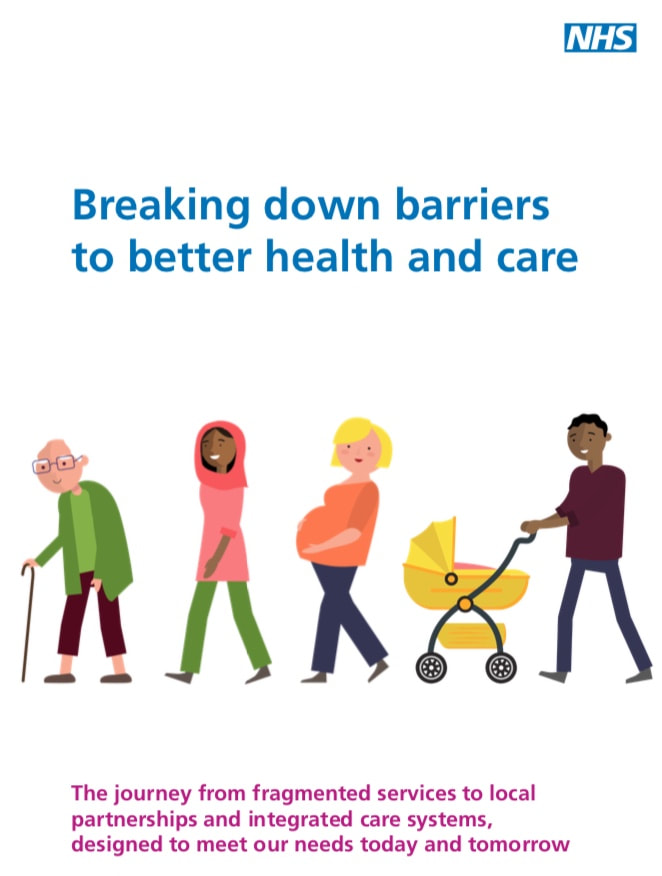NEWS - JUNE and JULY 2018
ON LINE SERVICES
JULIE COOPER - Shadow Minister (Health and Social Care) (Community Health)
I, too, welcome the Secretary of State to his new position. I note his intention to extend online NHS services, but I hope that he will provide more detail about how he intends to guarantee patient safety, given that the Care Quality Commission reported this year that 43% of online GP and pharmacy services are currently unsafe. Will he reverse the cuts to capital funding so that safe technology can be installed? Furthermore, what steps will he take to ensure that elderly and vulnerable patients, who find it difficult to access online services, will still have the certainty of sustainable community surgeries?
MATTHEW HANCOCK - Secretary of State for Health and Social Care
Those are really important questions. On funding, I announced only last week £487 million to improve technology and technology services to ensure that they can be as high quality as possible. On patient safety, the key is to keep improving technology so that it gets better and better. On universal access, we must use technology in such a way that patients who want to access services through technology can do so, as that frees up resources so that more can be done for those who do not want to use technology, meaning that we preserve universal access.
JULIE COOPER - Shadow Minister (Health and Social Care) (Community Health)
I, too, welcome the Secretary of State to his new position. I note his intention to extend online NHS services, but I hope that he will provide more detail about how he intends to guarantee patient safety, given that the Care Quality Commission reported this year that 43% of online GP and pharmacy services are currently unsafe. Will he reverse the cuts to capital funding so that safe technology can be installed? Furthermore, what steps will he take to ensure that elderly and vulnerable patients, who find it difficult to access online services, will still have the certainty of sustainable community surgeries?
MATTHEW HANCOCK - Secretary of State for Health and Social Care
Those are really important questions. On funding, I announced only last week £487 million to improve technology and technology services to ensure that they can be as high quality as possible. On patient safety, the key is to keep improving technology so that it gets better and better. On universal access, we must use technology in such a way that patients who want to access services through technology can do so, as that frees up resources so that more can be done for those who do not want to use technology, meaning that we preserve universal access.
CORRESPONDENCE WITH THE SECRETARY OF STATE REGARDING SELF-DIAGNOSIS
Letter from Rt. Hon Jeremy Hunt, MP, Secretary of State for Health and Social Care, to Dr Sarah Wollaston, MP, Chair, Health and Social Care Committee, House of Commons
03 July 2018 - 3 pages
Letter from Rt. Hon Jeremy Hunt, MP, Secretary of State for Health and Social Care, to Dr Sarah Wollaston, MP, Chair, Health and Social Care Committee, House of Commons
03 July 2018 - 3 pages
|
NMC AT THE HEALTH SELECT COMMITTEE
Nursing and Midwifery Council at the Health Select Committee https://www.parliamentlive.tv/Event/Index/66054acc-5529-4b97-b091-636a2cacd518 |
THE FAILURE TO INVOLVE
One thing the NHS has failed to do in its 70 year history, despite a torrent of rhetoric and regular promises, is to involve patients effectively in the commissioning and delivery of services.
So says David Gilbert, whose article for the BMJ argues that despite the costs and pressures on the NHS, real engagement of patients and the public is essential to the collaborative leadership on which the survival of the service depends.
https://blogs.bmj.com/bmj/2018/07/02/a-modern-nhs-requires-collaborative-leadership-with-patients-as-leaders-at-decision-making-tables/.
One thing the NHS has failed to do in its 70 year history, despite a torrent of rhetoric and regular promises, is to involve patients effectively in the commissioning and delivery of services.
So says David Gilbert, whose article for the BMJ argues that despite the costs and pressures on the NHS, real engagement of patients and the public is essential to the collaborative leadership on which the survival of the service depends.
https://blogs.bmj.com/bmj/2018/07/02/a-modern-nhs-requires-collaborative-leadership-with-patients-as-leaders-at-decision-making-tables/.
NEW FUNDING, FIGURES
The Government has agreed to increase NHS England’s budget by an average of 3.4 per cent in each of the next five years.
https://www.parliament.uk/depositedpapers#toggle-598
The Government has agreed to increase NHS England’s budget by an average of 3.4 per cent in each of the next five years.
https://www.parliament.uk/depositedpapers#toggle-598
|
BREAKING DOWN BARRIERS TO BETTER HEALTH AND CARE
A journey from fragmented services to local partnerships and integrated care systems, designed to meet our needs today and tomorrow. 6 pages How NHS organisations and local councils in England are moving from fragmented services to local partnerships and integrated care systems in order to meet the health needs of the population. |
THIS WEEK IS VOLUNTEERS' WEEK!
Volunteers’ Week is a chance to say thank you for the fantastic contribution millions of volunteers make across the UK. It takes place from 1 to 7 June every year and is an opportunity to celebrate volunteering in all its diversity.
For more details see https://volunteersweek.org/
https://www.networks.nhs.uk/networks/news/volunteers2019-week
Volunteers’ Week is a chance to say thank you for the fantastic contribution millions of volunteers make across the UK. It takes place from 1 to 7 June every year and is an opportunity to celebrate volunteering in all its diversity.
For more details see https://volunteersweek.org/
https://www.networks.nhs.uk/networks/news/volunteers2019-week
WHERE ARE YOUR PRIMARY CARE CONTRACTS?
Most CCGs are now “delegated”, which means they have inherited responsibility for primary medical care contracts from NHS England.
Unfortunately, they haven’t all inherited an up-to-date schedule of contracts or complete paperwork for every provider. Your CCG may be paying for enhanced services that are not underpinned by a valid contract.
In extreme cases, services may be out of contract before the commissioner is aware of a problem!
It may be necessary to undertake a comprehensive review to establish a schedule of core and supplementary contracts, ensure that all the right documentation is in place, and create a pipeline for procurement for contracts that are due to expire.
For more information contact [email protected]
https://www.pcc-cic.org.uk/article/do-you-know-where-your-primary-care-contracts-are
Most CCGs are now “delegated”, which means they have inherited responsibility for primary medical care contracts from NHS England.
Unfortunately, they haven’t all inherited an up-to-date schedule of contracts or complete paperwork for every provider. Your CCG may be paying for enhanced services that are not underpinned by a valid contract.
In extreme cases, services may be out of contract before the commissioner is aware of a problem!
It may be necessary to undertake a comprehensive review to establish a schedule of core and supplementary contracts, ensure that all the right documentation is in place, and create a pipeline for procurement for contracts that are due to expire.
For more information contact [email protected]
https://www.pcc-cic.org.uk/article/do-you-know-where-your-primary-care-contracts-are
LOCAL HEALTH AND CARE RECORD EXEMPLARS - A Summary
21 pages
This guidance provides a summary of the local health and care records exemplars programme. It outlines the aims and requirements of the programme and sets out potential future developments.
Introduction - Context . - Future Developments . Local Health and Care Record Exemplar Programme Requirements . Annex.
21 pages
This guidance provides a summary of the local health and care records exemplars programme. It outlines the aims and requirements of the programme and sets out potential future developments.
Introduction - Context . - Future Developments . Local Health and Care Record Exemplar Programme Requirements . Annex.
LORD CARTER FINDS 'CRITICAL VARIATIONS' IN COMMUNITY AND MENTAL HEALTH
10 pages
Provision and efficiency of community health services need to be “significantly strengthened,” alongside a greater and stronger workforce to meet the needs growing demand for mental health, are amongst the findings in the latest review into NHS practices by Lord Carter.24.05.18 Today’s delayed but much-anticipated and major 86-page report, which is the result of engagement with several mental health trusts and providers of community services since January last year, found the need for a stronger mechanism for sharing between the two services.
“As a result of that engagement, this review has identified critical and unwarranted variations in all key resource areas,” the document’s foreword said.
“It is clear from the performance of some providers that parts of the sectors know what to do well – the challenge we face is how we raise the average standard of performance closer to the level of the best. Our work has identified four important areas where operational improvement must be made.”
10 pages
Provision and efficiency of community health services need to be “significantly strengthened,” alongside a greater and stronger workforce to meet the needs growing demand for mental health, are amongst the findings in the latest review into NHS practices by Lord Carter.24.05.18 Today’s delayed but much-anticipated and major 86-page report, which is the result of engagement with several mental health trusts and providers of community services since January last year, found the need for a stronger mechanism for sharing between the two services.
“As a result of that engagement, this review has identified critical and unwarranted variations in all key resource areas,” the document’s foreword said.
“It is clear from the performance of some providers that parts of the sectors know what to do well – the challenge we face is how we raise the average standard of performance closer to the level of the best. Our work has identified four important areas where operational improvement must be made.”
These areas include contract specification, currently “inconsistent and overly bureaucratic”; technology, whose use is not optimal at present, lagging behind even other public sector services; delivery, which included a proposed new regional structure across NHS Improvement and NHS England; and staff.
For example, effective staff rostering, training, and job planning were cited as factors currently “missing in too many providers” of mental and community services, and a high level of bullying and staff harassment were identified by Carter as “inconsistent” with the national mantra that medical staff are the NHS’s most valuable asset.
The use of technology was particularly of interest in the report – with over a quarter of community nursing services still operating paper-based systems, the inability to provide a single view of the patient across organisations was labelled “lamentable.”
“This lack of investment in adequate systems is indefensible in 2018, and means valuable staff time is wasted and patients do not receive the best care,” Lord Carter continued.
Effective national leadership across community and mental health were seen as the main driver behind productivity improvement within community hospitals, as it gives services a “much clearer idea of ‘what good looks like.’”
Lord Carter also recommended extending the scope of community and mental health services to the Getting it Right First Time (GIRFT) programme and identifying more efficient and high-quality pathways of care for patients.
The report added: “In summary, we could find no reason why the system should not move more quickly to adopt best practice, save for the constraints of capability and capacity.”
Providers ‘look forward’ to implementing recommendations
Responding to the findings, head of policy at NHS Providers Amber Jabbal said: “Highlighting unwarranted variation in key areas for the first time presents a new opportunity for trusts to improve their productivity and providers look forward to working with NHS Improvement to implement the recommendations.
“The inclusion of mental health services in GIRFT is a welcome – if overdue – recognition that this is as important as acute physical health services, and we strongly support the recommendation to extend this to community health services.”
But Jabbal noted that above all, the services require adequate funding and action to address staff shortages.
“We need to seize the opportunities presented by the push for integrated care and the prime minister’s commitment to increase long-term health and care funding to make good on past promises, and bring NHS community services centre stage,” she added.
Today’s report follows on from Lord Carter’s major review of operational productivity and performance in the acute sector, which identified a potential £5bn worth of savings across the health service.
http://www.nationalhealthexecutive.com/Robot-News/lord-carter-finds-critical-variations-in-community-and-mental-health-review
For example, effective staff rostering, training, and job planning were cited as factors currently “missing in too many providers” of mental and community services, and a high level of bullying and staff harassment were identified by Carter as “inconsistent” with the national mantra that medical staff are the NHS’s most valuable asset.
The use of technology was particularly of interest in the report – with over a quarter of community nursing services still operating paper-based systems, the inability to provide a single view of the patient across organisations was labelled “lamentable.”
“This lack of investment in adequate systems is indefensible in 2018, and means valuable staff time is wasted and patients do not receive the best care,” Lord Carter continued.
Effective national leadership across community and mental health were seen as the main driver behind productivity improvement within community hospitals, as it gives services a “much clearer idea of ‘what good looks like.’”
Lord Carter also recommended extending the scope of community and mental health services to the Getting it Right First Time (GIRFT) programme and identifying more efficient and high-quality pathways of care for patients.
The report added: “In summary, we could find no reason why the system should not move more quickly to adopt best practice, save for the constraints of capability and capacity.”
Providers ‘look forward’ to implementing recommendations
Responding to the findings, head of policy at NHS Providers Amber Jabbal said: “Highlighting unwarranted variation in key areas for the first time presents a new opportunity for trusts to improve their productivity and providers look forward to working with NHS Improvement to implement the recommendations.
“The inclusion of mental health services in GIRFT is a welcome – if overdue – recognition that this is as important as acute physical health services, and we strongly support the recommendation to extend this to community health services.”
But Jabbal noted that above all, the services require adequate funding and action to address staff shortages.
“We need to seize the opportunities presented by the push for integrated care and the prime minister’s commitment to increase long-term health and care funding to make good on past promises, and bring NHS community services centre stage,” she added.
Today’s report follows on from Lord Carter’s major review of operational productivity and performance in the acute sector, which identified a potential £5bn worth of savings across the health service.
http://www.nationalhealthexecutive.com/Robot-News/lord-carter-finds-critical-variations-in-community-and-mental-health-review




